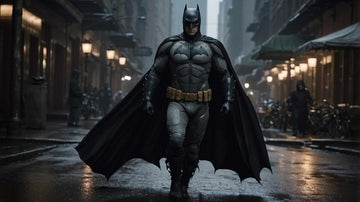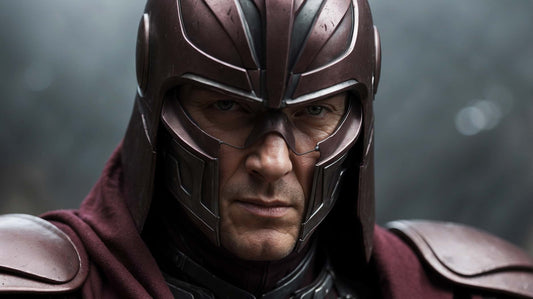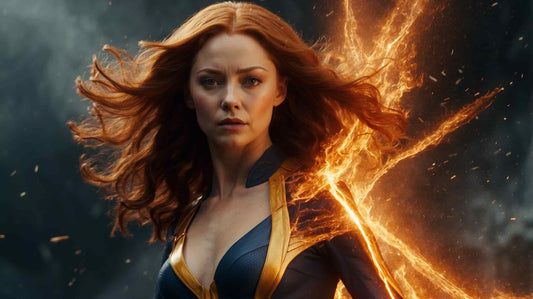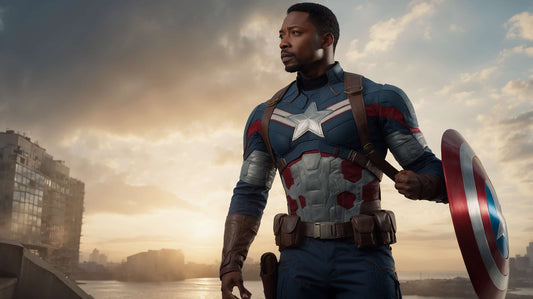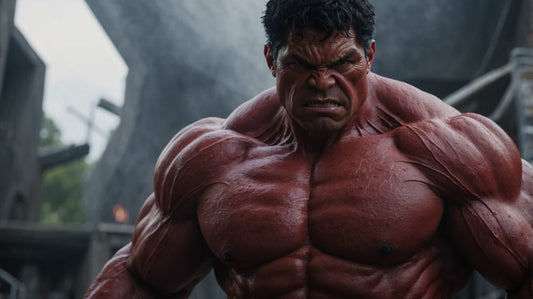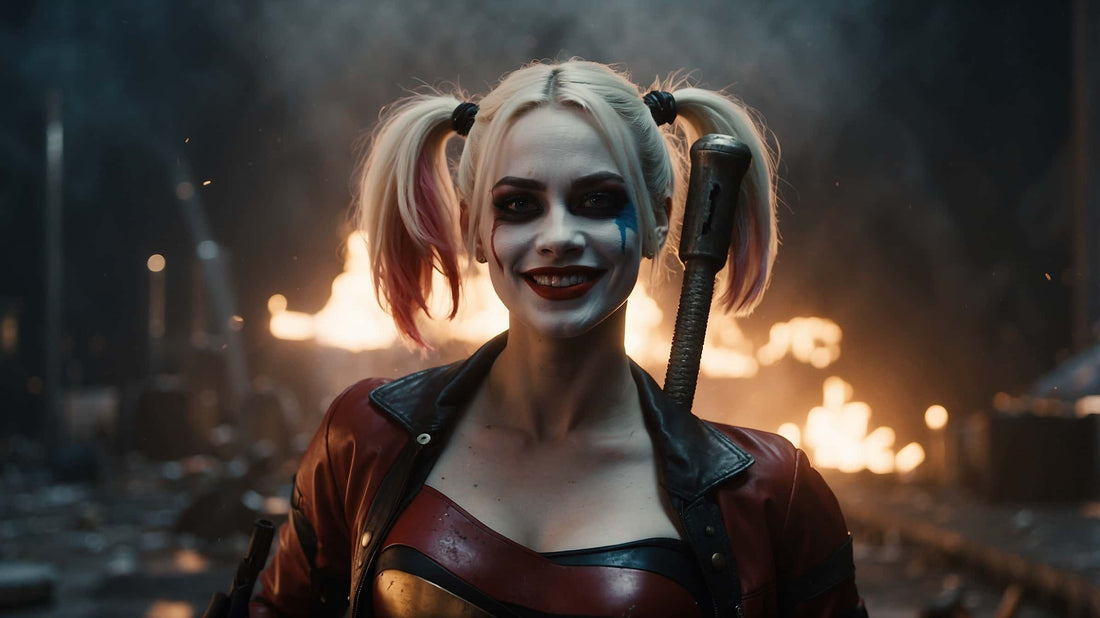
Harley Quinn: how did a doctor become a criminal?
Harley Quinn, a brilliant psychiatrist turned anti-heroine, is one of the most fascinating and complex characters in the DC universe. From her obsessive love for the Joker to her journey towards independence, she embodies madness, resilience, and female empowerment. Discover her origins, unique personality, powers, and the traumas that have shaped her story.
The Origins of Harley Quinn
Harley Quinn, whose real name is Harleen Quinzel, is a complex and fascinating character from the DC Comics universe. Unlike many comic book characters, Harley wasn’t born in the pages of a comic but in the animated series Batman: The Animated Series in 1992, created by Paul Dini and Bruce Timm.
The original idea was to create a female sidekick for the Joker, but Harley Quinn quickly became much more than that.
Born in Brooklyn, Harleen Quinzel is a brilliant psychiatrist working at Arkham Asylum, a fictional psychiatric hospital in Gotham City. Fascinated by criminal psychology, she specializes in studying patients with severe mental disorders.
It is during her work that she meets the Joker, a fascinating patient for whom she develops an obsessive attraction. The origins of Harley Quinn are marked by a paradox: her intelligence and compassion, which are meant to help her heal patients, become the instruments of her own destruction.
In her early appearances, Harley Quinn embodies a figure of mad love, a character manipulated by the Joker and chained by a destructive love.
However, over the years, DC Comics creators allowed her to evolve, first as the Joker’s accomplice, then as an independent character, and even as an anti-heroine.
The origins of Harley Quinn are not limited to a supporting role: she has become a symbol of liberation and complexity, evolving from psychiatrist to supervillain, and from anti-heroine to pop culture icon.

What is Harley Quinn's Goal?
Harley Quinn's goal is as changeable as her personality.
In her early days, she lives to serve and please the Joker, whom she considers the love of her life. This bond is based on an unbalanced relationship where Harley constantly sacrifices herself, putting aside her own values and ambitions to meet the demands of her "Puddin'".
However, this phase of blind admiration hides deeper desires that Harley will discover over time.
After being betrayed and manipulated multiple times by the Joker, Harley Quinn begins to realize that her future cannot solely depend on her obsession with him. She moves toward a form of personal liberation, seeking to break free from the Joker's toxic influence.
This change is particularly evident in recent series and the movie Birds of Prey, where Harley explores her own identity outside of her role as an accomplice.
Now, Harley Quinn's goal is no longer to satisfy another, but to live by her own rules. She transforms into an anti-heroine, a figure who oscillates between good and evil, with no real attachment to Gotham's laws.
She often works for herself, sometimes as part of teams like the Suicide Squad. Ultimately, her goal is to discover herself and prove she is much more than the Joker's sidekick.
By embracing her freedom and madness, she becomes a symbol of female empowerment and the freedom to choose her own path.
What is Harley Quinn's Personality?
Harley Quinn is one of the most dynamic characters in the DC universe, and her personality is a fascinating mix of madness, charm, intelligence, and vulnerability.
Her character is marked by traits of impulsivity and mischief, but also by a sharp intelligence derived from her background as a psychiatrist. This paradoxical combination makes her unpredictable and captivating, a true emotional firework in Gotham's dark universe.
Beneath her apparent lightheartedness and antics lies a complex personality. Harley is capable of moments of great clarity, while being ready to follow her most dangerous instincts. Her personality, oscillating between vulnerability and exuberance, makes her a character who, although sometimes unstable, remains deeply human and endearing.
She is also marked by a strong sense of loyalty, whether towards the Joker in her early days or towards her friends, like Poison Ivy, in her later adventures.
One of the most fascinating aspects of her personality is her ability to exhibit self-deprecation and resilience in the face of the most dangerous situations. Harley often uses humor to downplay her own suffering, a defense mechanism that makes her both tragic and sympathetic.
Her personality reflects a constant struggle between her need for love and her quest for identity, which pushes her to challenge the limits of normality and embrace her own madness.
How Does Harley Quinn Meet the Joker?
The meeting between Harley Quinn and the Joker is a crucial event that transforms Harleen Quinzel's life. A newly graduated psychiatrist, Harleen is assigned to Arkham Asylum and accepts the challenge of understanding and treating the Joker, one of the most dangerous and unpredictable patients.
Fascinated by this charismatic criminal, she begins therapy sessions with him, hoping to uncover the traumas that turned him into a criminal.
Over the sessions, the Joker plays with Harleen's compassion, using his charm and ability to manipulate emotions to make her let her guard down. He tells stories from his childhood, sometimes false, sometimes true, creating an intense emotional connection with the young woman.
This psychological game slowly breaks down Harleen’s professional barriers, who gradually falls under her patient’s control.
Under the Joker's influence, Harleen abandons her principles and plunges into a world of madness. She ultimately takes on the role of Harley Quinn, changing her appearance and adopting a criminal lifestyle to stay by the side of the one she considers the love of her life.
This destructive meeting marks the beginning of her descent into crime and madness but also sets the foundation for her future evolution, where she will eventually regain control of her life and emancipate herself from this toxic relationship.

What is Harley Quinn's Superpower?
Although Harley Quinn has no innate superpowers, she possesses extraordinary strength, agility, and endurance gained from her criminal experiences.
In certain DC Comics arcs, she has been given immunity to toxins thanks to Poison Ivy, who injected her with a special serum. This protection against poisons and toxins enhances her survival capabilities in extreme situations, especially when facing opponents using chemical substances.
In addition to this resilience, Harley is also a skilled fighter.
Her training in gymnastics grants her exceptional agility and flexibility, making her a formidable opponent capable of executing quick and unpredictable movements in combat.
She is also proficient in handling improvised weapons, often associated with her iconic baseball bat or her giant hammer, accessories she wields with great skill.
The true power of Harley Quinn lies, however, in her intelligence and her ability to destabilize her opponents.
As a psychiatrist, she knows mental weaknesses and uses this knowledge to manipulate or surprise those she faces. Her unpredictable mind and ability to think unconventionally are her most effective weapons, enabling her to thwart even the most elaborate plans.
Thus, even without superpowers, Harley Quinn is a force to be reckoned with in the Gotham universe.
What is Harley Quinn's Trauma?
Harley Quinn's trauma is rooted in her destructive relationship with the Joker.
Initially, Harleen Quinzel is a dedicated psychiatrist, but her fascination with the Joker leads her to abandon her values and allow herself to be manipulated. This abusive relationship is the main source of her suffering and the fracture of her identity. The Joker, using emotional manipulation, erodes her perception of reality, leading to a loss of direction and profound psychological distress.
In addition to the Joker's influence, Harley faces betrayal, emotional abuse, and constant rejection, which intensifies her feelings of abandonment and loneliness.
Over time, these traumas accumulate and contribute to her mental deterioration. Harley goes through a series of disorders, from obsessive love to depression, alternating between moments of clarity and madness. Her trauma is visible in her tendency to devalue herself and submit to the Joker's desires, even if it drives her to self-destructive behavior.
Despite everything, Harley Quinn gradually manages to transform this trauma into a force of resilience.
Far from sinking completely, she embarks on a path of emancipation, accepting her mistakes and redefining her own identity outside the Joker’s shadow. This journey of resilience in the face of abuse has turned Harley Quinn into a modern feminist icon and a symbol of personal reconstruction.

By the MySuperSuit team


